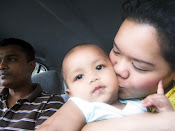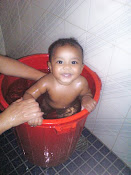Effects on child development




For many, the use of paid childcare is a matter of choice with arguments on both sides about whether this is beneficial or harmful to children.
The first few years of a child's life are important to form a basis for good education, morality, self-discipline and social integration. Consistency of approach, skills and qualifications of careers have been shown in many studies to improve the chances of a child reaching his or her full potential. However, the choice of childcare can be extremely difficult, even traumatic for parents. Social scientists have recently started drawing on popular folktales such as urban legends in order to uncover some of the complex socio-psychological elements in the decision, which is often more protracted and involved for middle-class parents[1]. Here it is also possible to see the influence of older story-telling elements such as Grimm's Fairy Tales where children learn about the dangers of allowing strangers into the home.
For example, a recent study in Australia[2] concluded that centers run by corporate chains provided the lowest quality care when compared to community-based providers and independent private centers.
In many locales, government is responsible for monitoring the quality of care. For instance, in Scotland Her Majesty's Inspectorate of Education is responsible for improving care and education for children from birth to eighteen. This is implemented by inspections carried out by HMIE itself or by other members of inspection and review teams. Inspection reports include feedback from staff and parents as well as the inspectors, aiming to provide parents and carers information to help them decide whether a particular child care setting is providing good quality child care and meeting government standards.[3]
The first few years of a child's life are important to form a basis for good education, morality, self-discipline and social integration. Consistency of approach, skills and qualifications of careers have been shown in many studies to improve the chances of a child reaching his or her full potential. However, the choice of childcare can be extremely difficult, even traumatic for parents. Social scientists have recently started drawing on popular folktales such as urban legends in order to uncover some of the complex socio-psychological elements in the decision, which is often more protracted and involved for middle-class parents[1]. Here it is also possible to see the influence of older story-telling elements such as Grimm's Fairy Tales where children learn about the dangers of allowing strangers into the home.
For example, a recent study in Australia[2] concluded that centers run by corporate chains provided the lowest quality care when compared to community-based providers and independent private centers.
In many locales, government is responsible for monitoring the quality of care. For instance, in Scotland Her Majesty's Inspectorate of Education is responsible for improving care and education for children from birth to eighteen. This is implemented by inspections carried out by HMIE itself or by other members of inspection and review teams. Inspection reports include feedback from staff and parents as well as the inspectors, aiming to provide parents and carers information to help them decide whether a particular child care setting is providing good quality child care and meeting government standards.[3]







